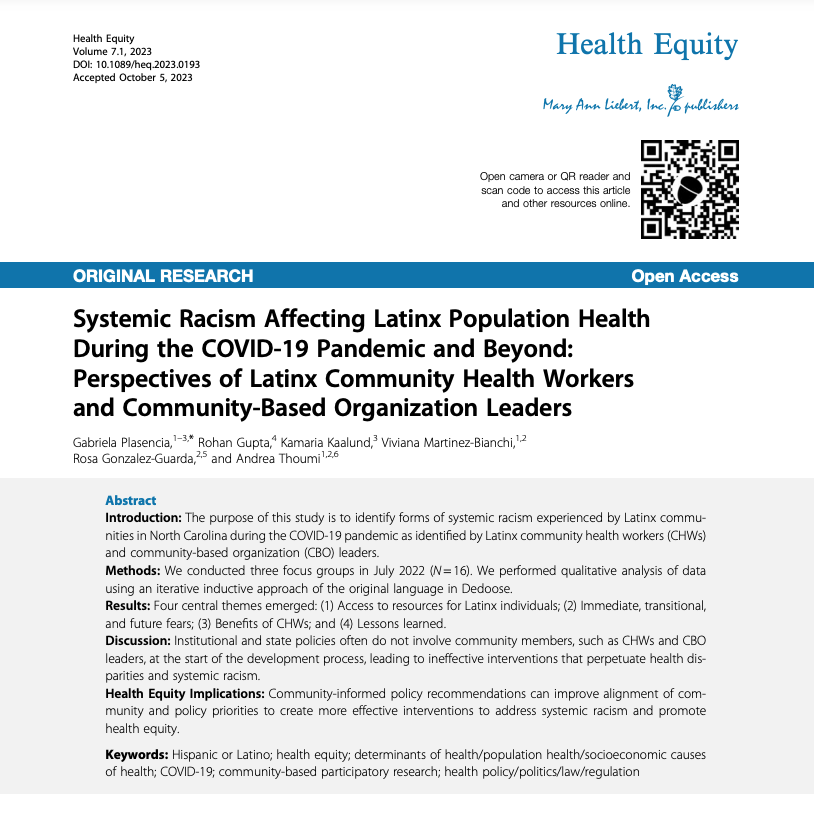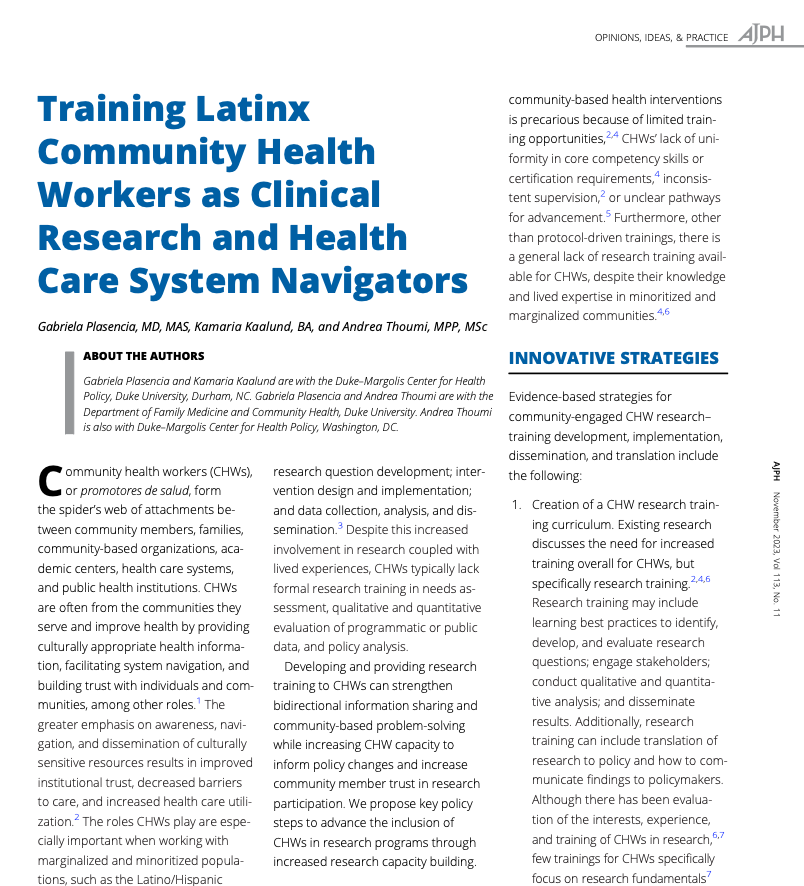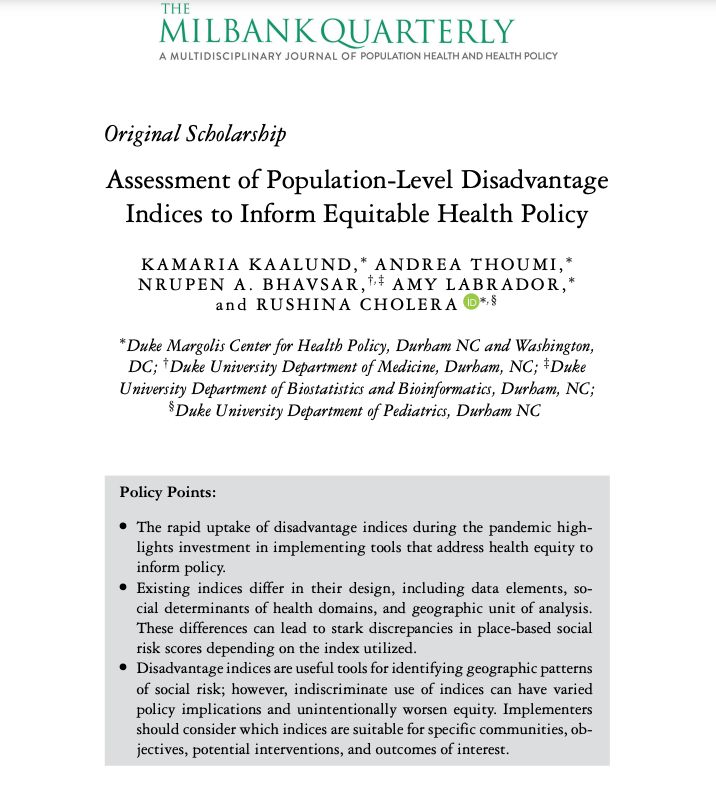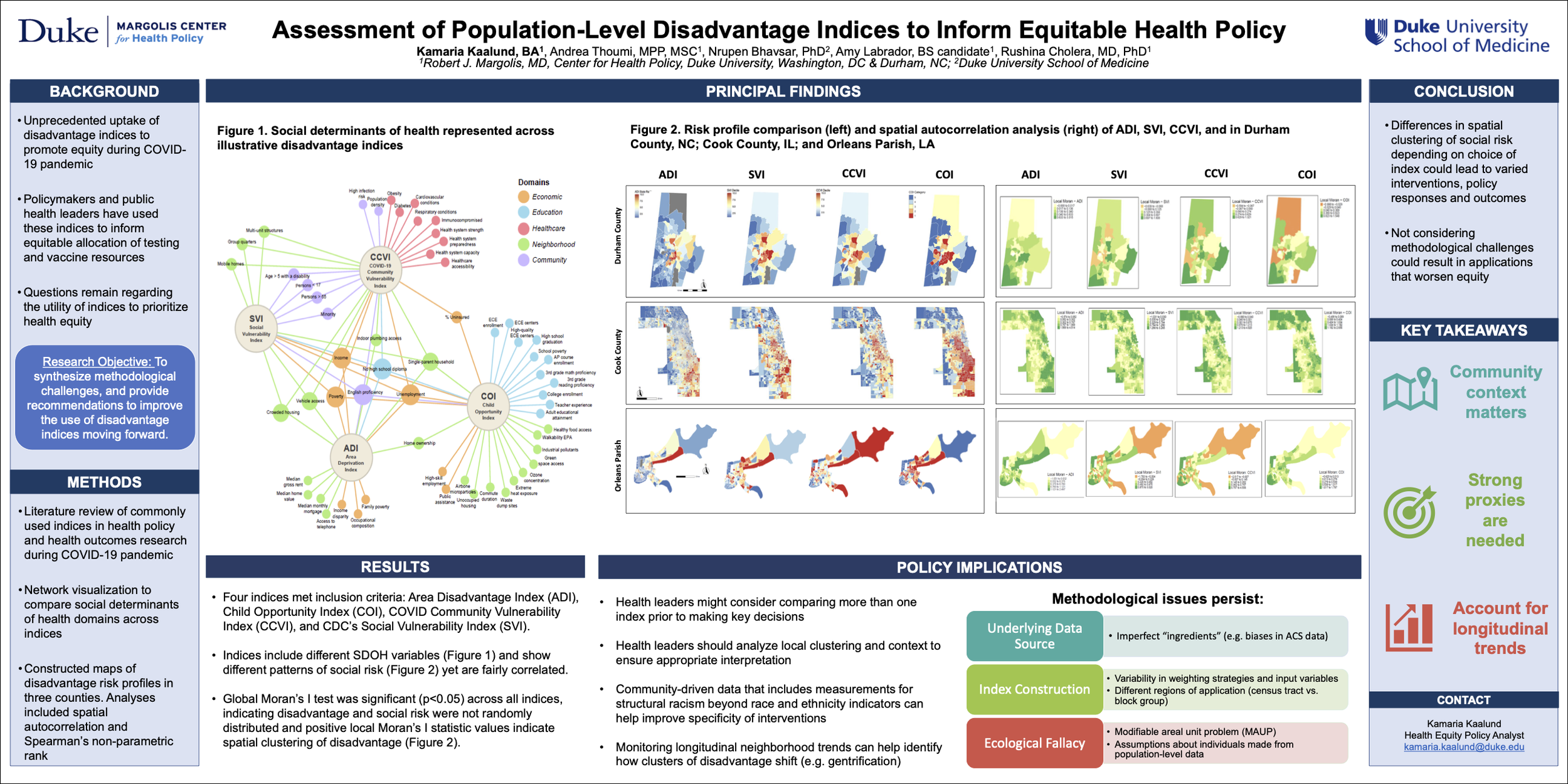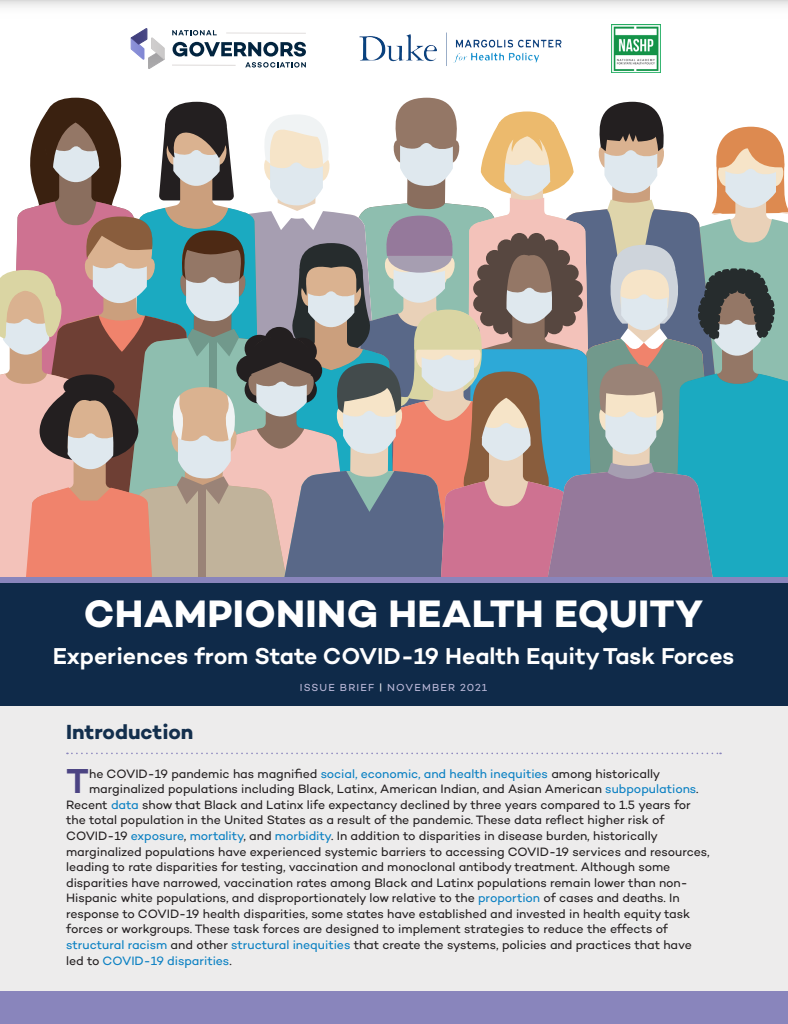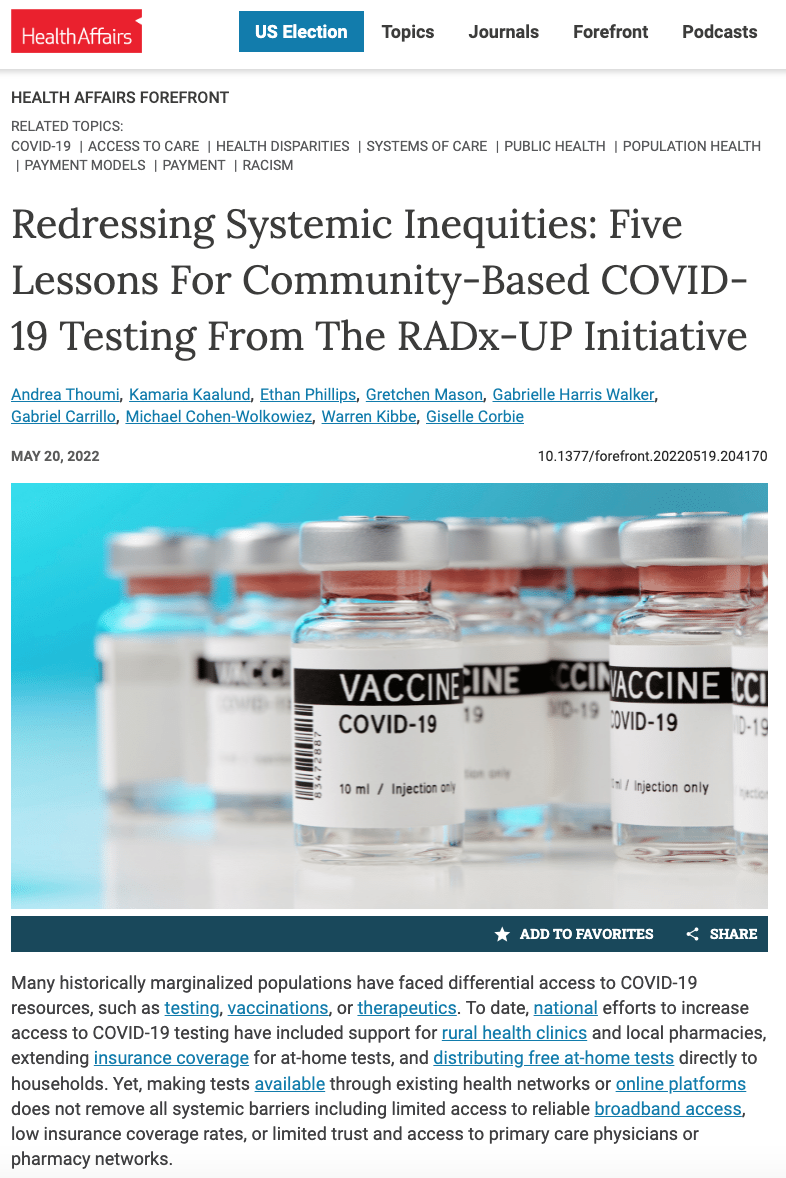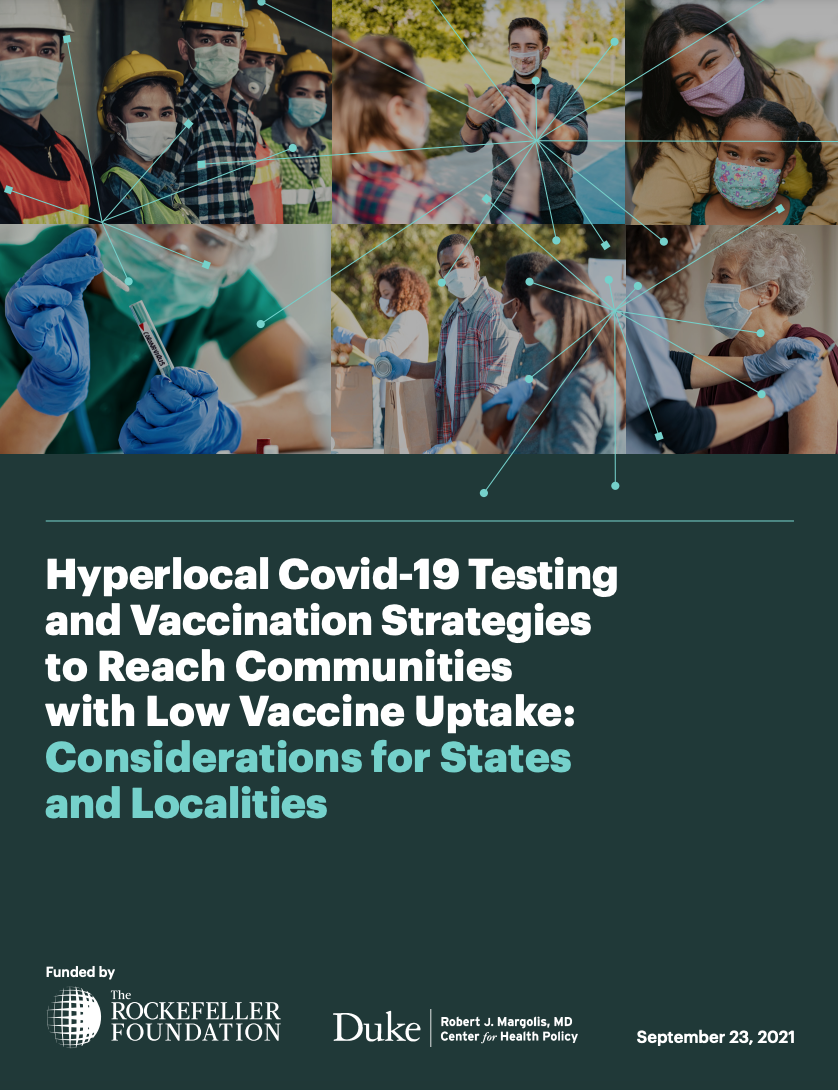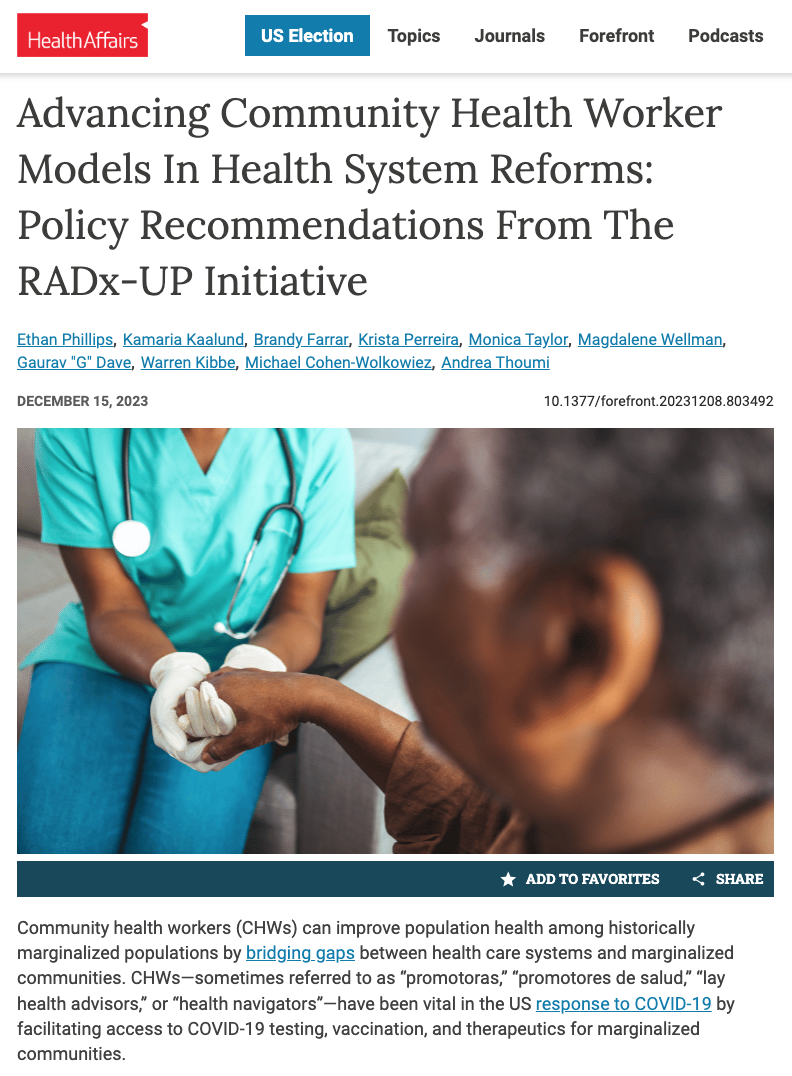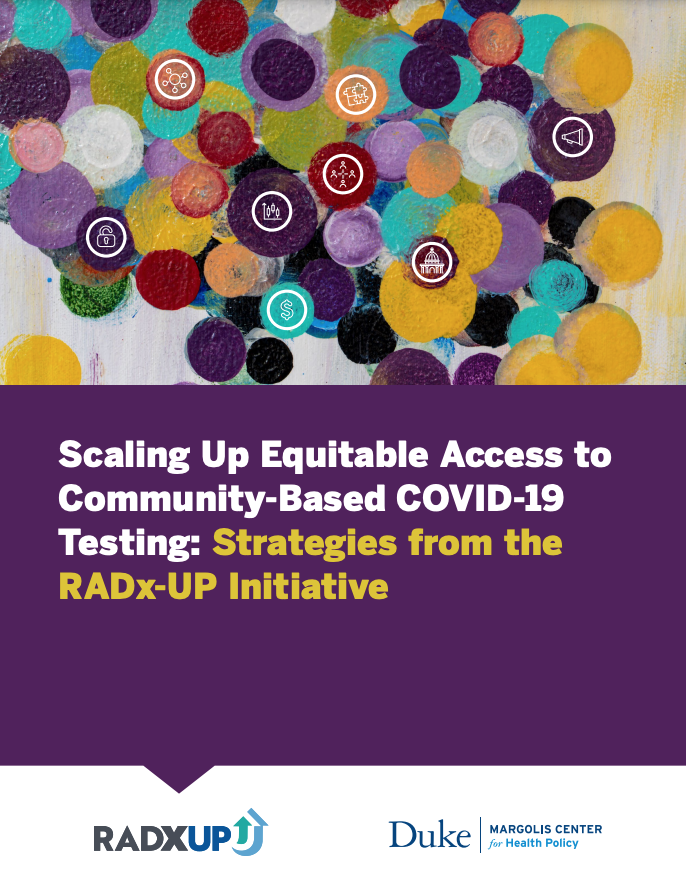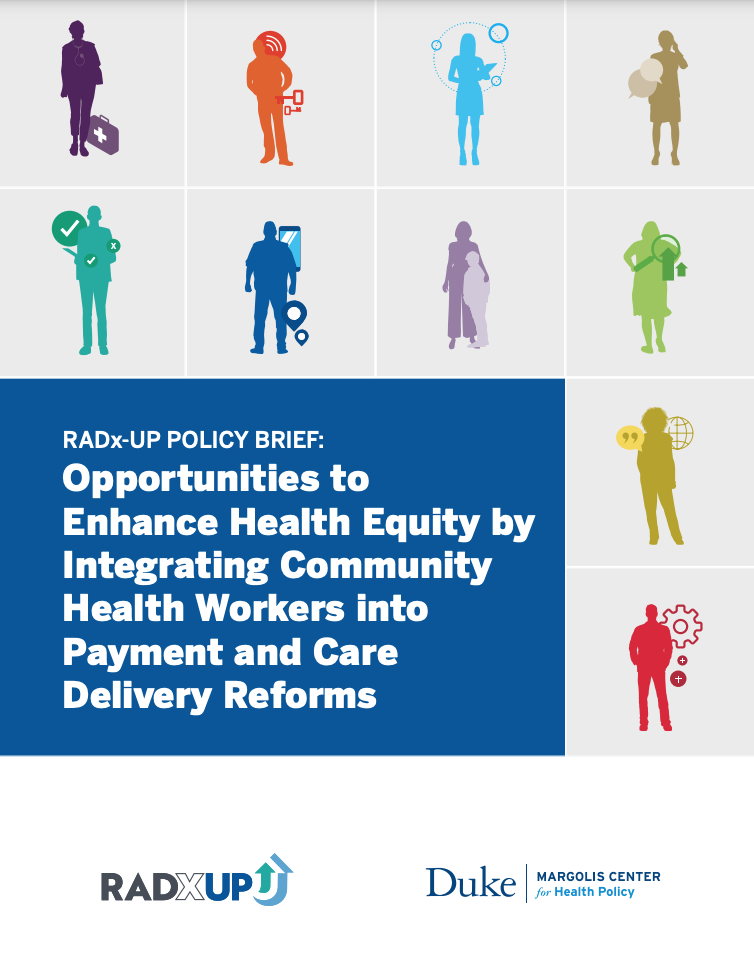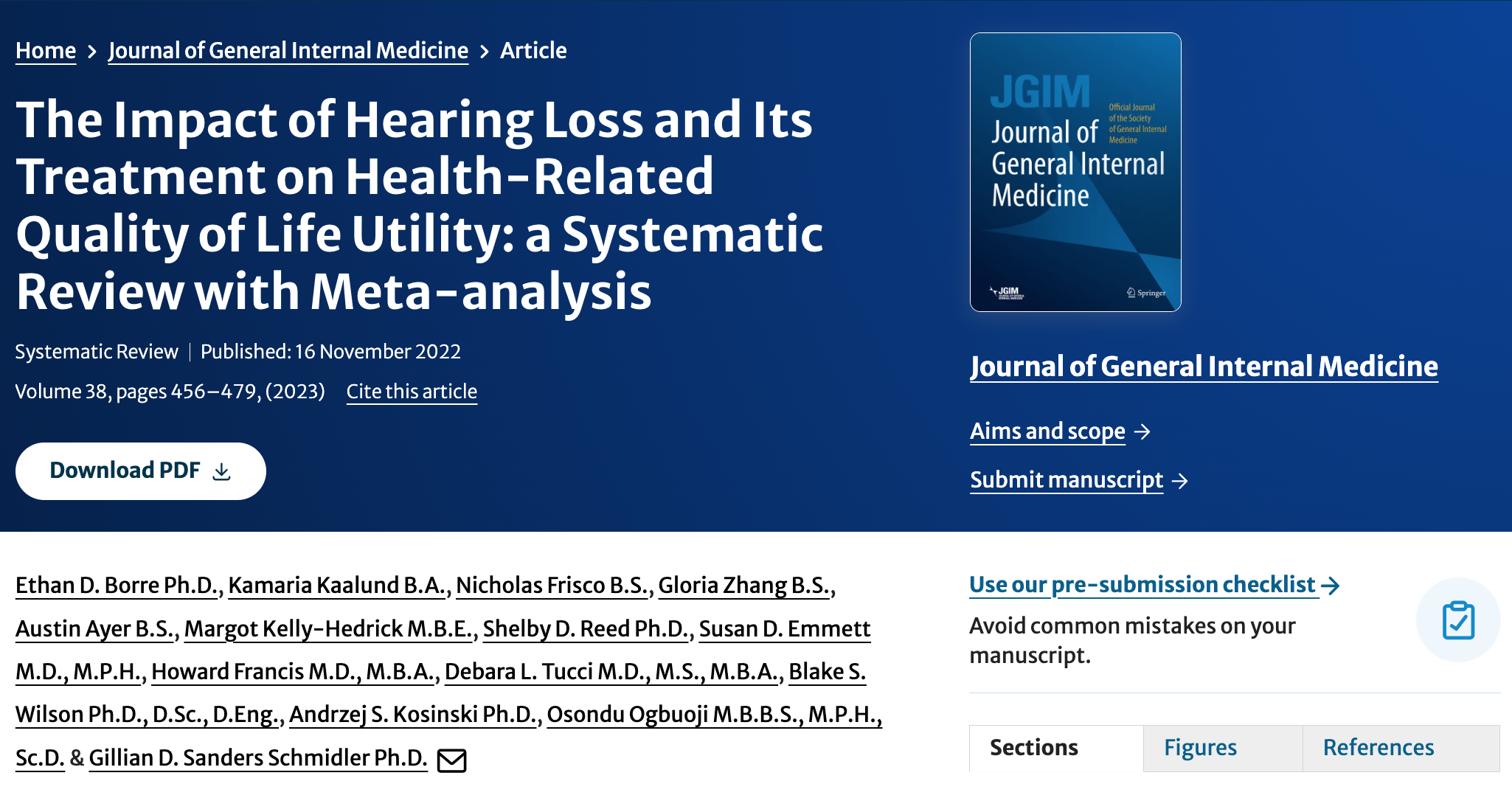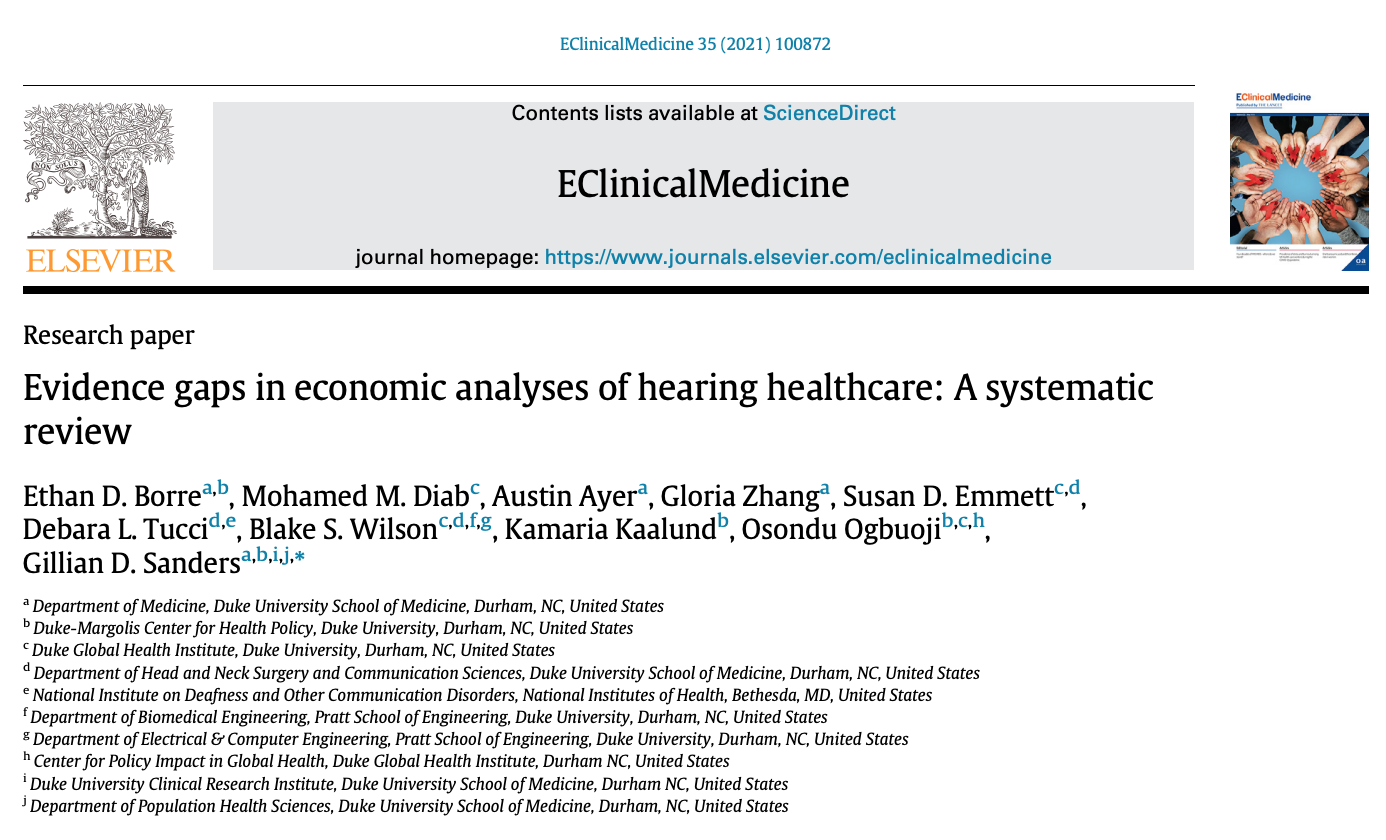

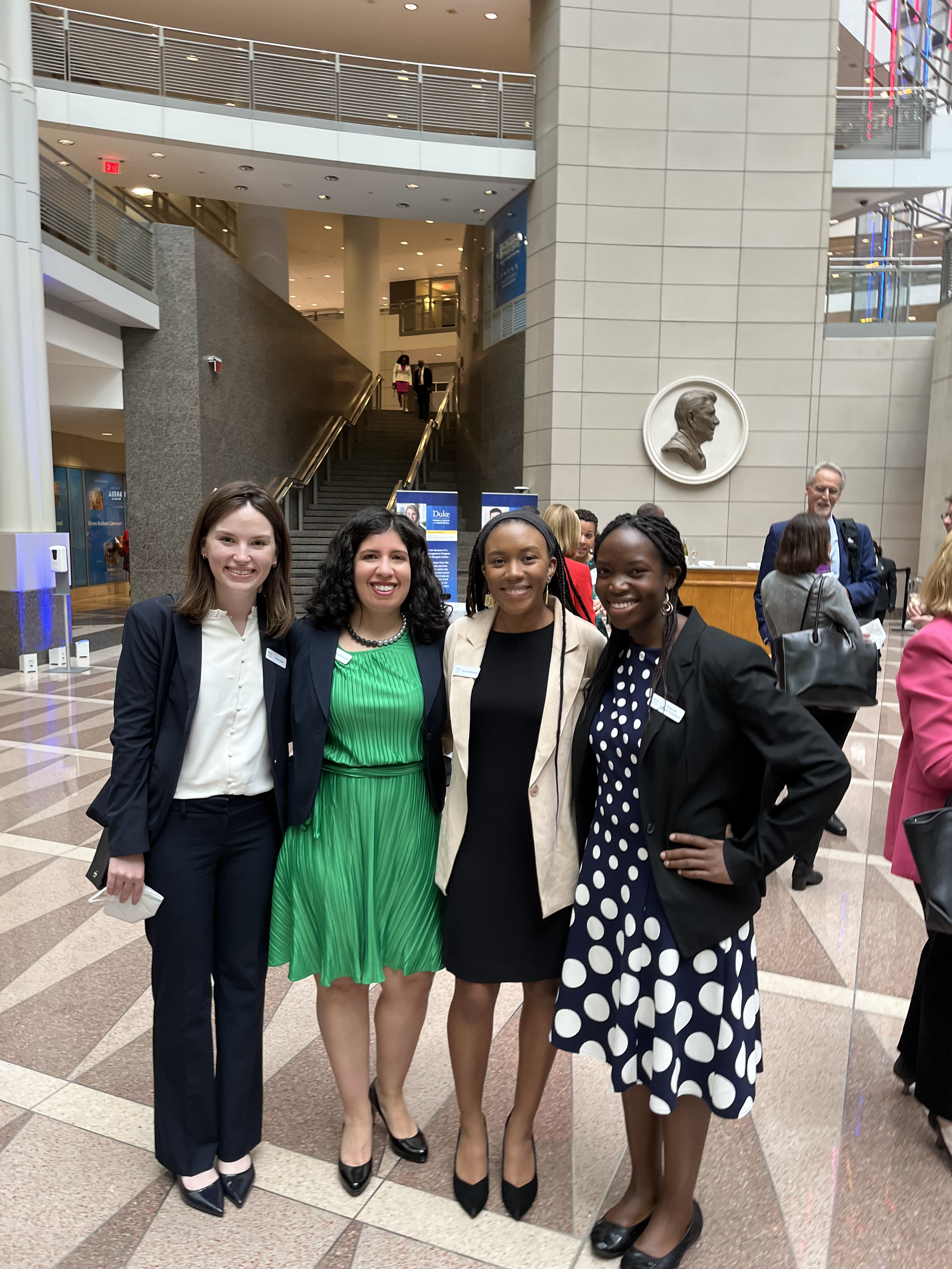


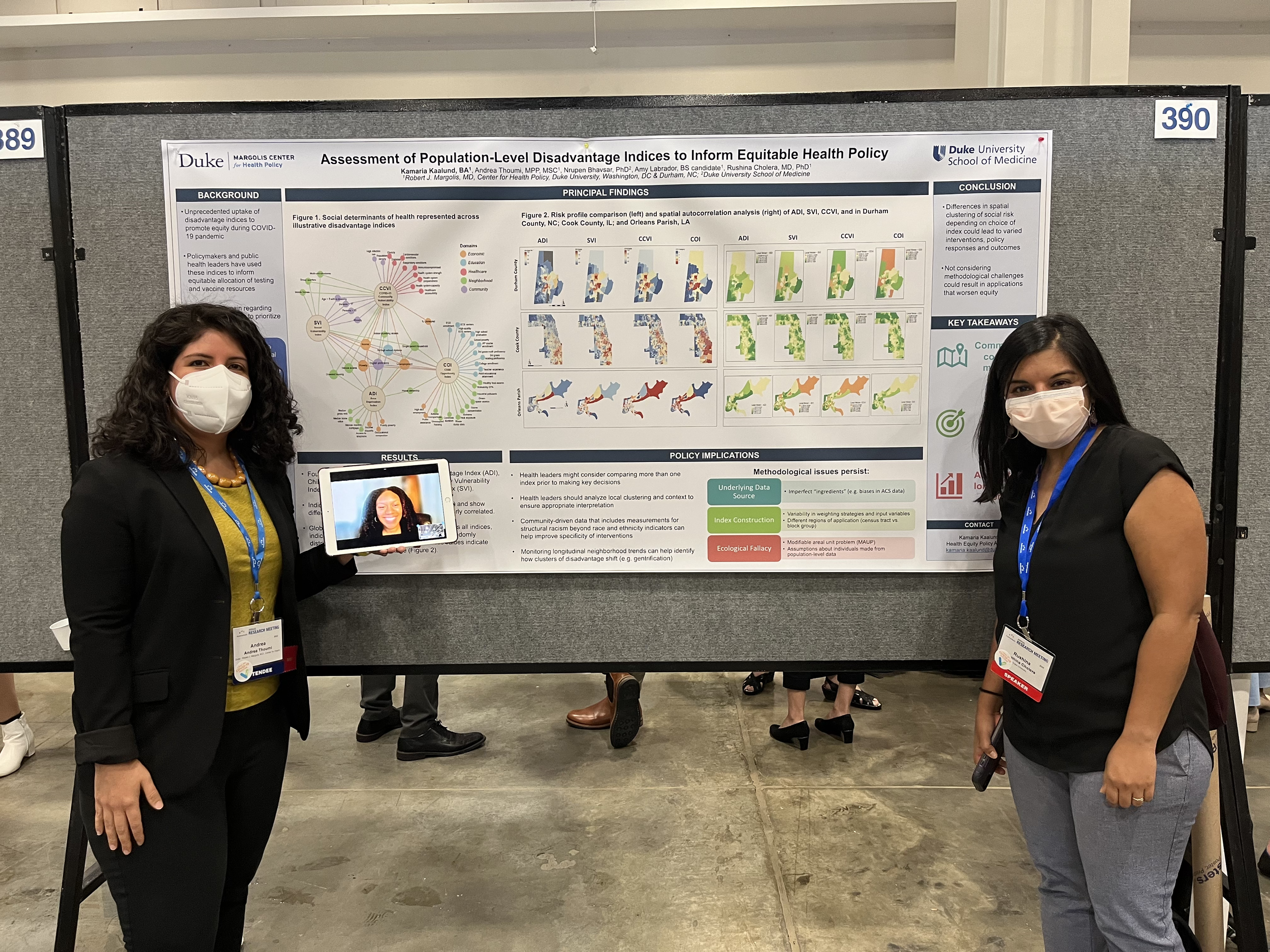

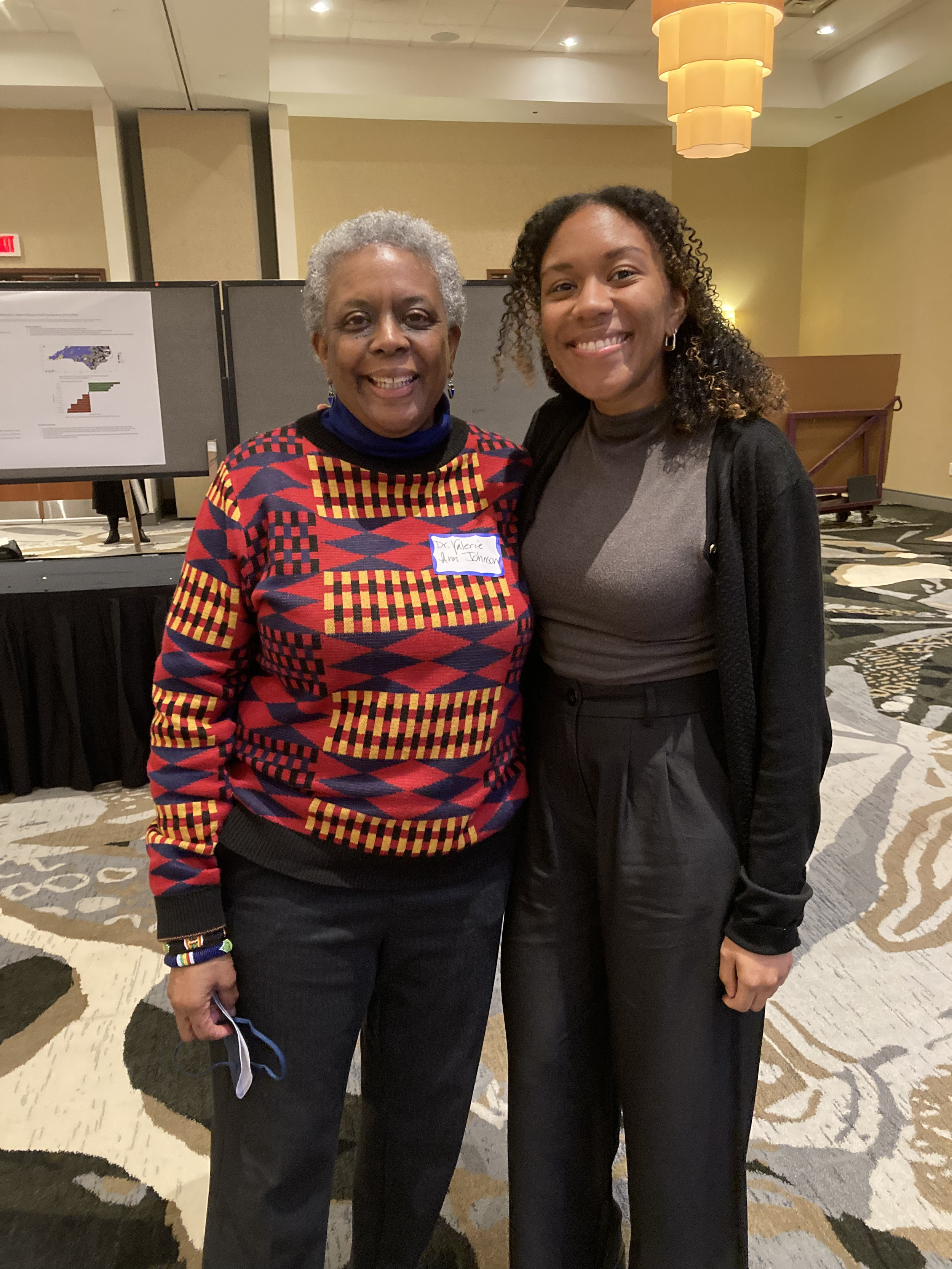
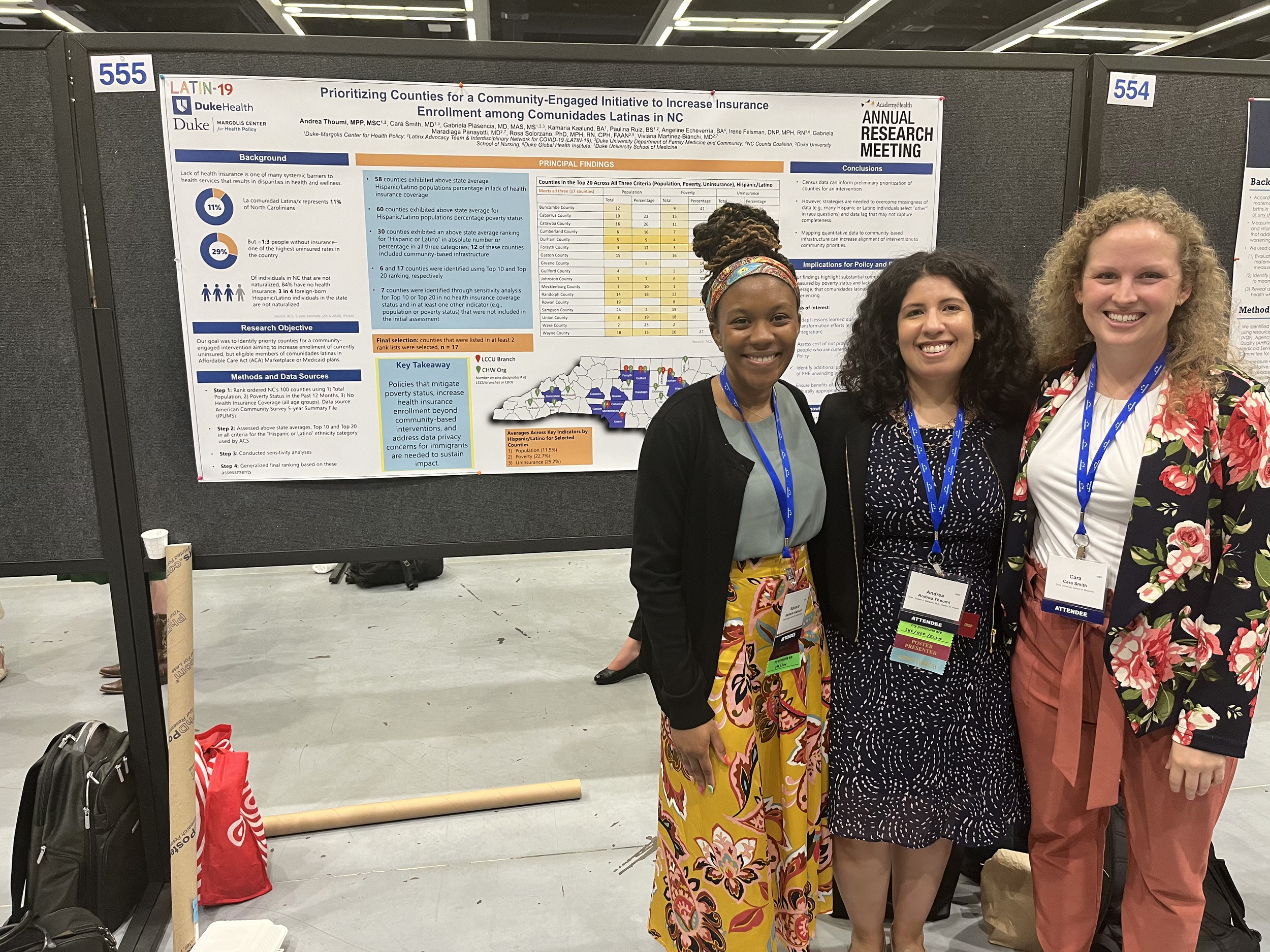


Research Portfolio
Latinx Health Equity
Latinx Health and COVID-19
At Duke-Margolis I contributed to several projects led by Andrea Thoumi, MPP, MSc assessing systemic inequities experienced by the Latinx community in North Carolina during the COVID-19 pandemic and the role of CHWs in bridging access to care gaps. In collaboration with the Latinx Advocacy Team & Interdisciplinary Network for COVID-19 (LATIN-19) in Durham, North Carolina, we synthesized state policies during the pandemic and identified community interventions to address the burden of COVID-19. LATIN-19 is a multi-sector group representing academic institutions, healthcare systems, public health departments, public school systems, community-based organizations, government, faith communities, and others.
Project FIEL-NC
As a collaborator on project FIEL-NC (Fostering Insurance Enrollment among Latinos in North Carolina), I worked with an interdisciplinary team at Duke University to support research aiming to: 1) increase enrollment of Latinx community members who are uninsured but eligible for Affordable Care Act health plans or Medicaid and, 2) inform policy options to sustain health enrollment expansion efforts.
This work was completed under the leadership of Dr. Viviana Martinez-Bianchi, Ms. Andrea Thoumi, Dr. Rosa Gonzalez-Guarda, and Dr. Rosa Solorzano. Paulina Ruiz is the project planner for Project FIEL-NC.
Social Vulnerability and Health Policy
This work compares population-level disadvantage indices (e.g. SVI) and explores their unprecedented uptake over the COVID-19 pandemic to inform equitable resource allocation. The objective of this research was to synthesize methodological challenges and provide recommendations to improve the use of disadvantage indices (e.g., Social Vulnerability Index and Area Deprivation Index) in public health and health policy decision-making.
Our main takeaway was that differences in spatial clustering of social risk depending on choice of disadvantage index could lead to varied interventions, policy responses and outcomes. Due to variability across indices in weighting strategies used, input variables, and geographic units of analysis, it is important that health leaders and policymakers critically appraise the utility of different indices to address specific research questions or measure specific outcomes.
Read the full article here.
Abstract presented at AcademyHealth’s 2022 Annual Research Meeting (ARM)
Community Health and COVID-19 Policy
While at Duke-Margolis I contributed to and led timely research on equity gaps in the COVID-19 pandemic response. I co-authored several policy briefs and white papers synthesizing evidence from states and localities on strategies for the equitable allocation of COVID-19 resources in communities experiencing low vaccine and testing uptake. Through this portfolio of work, I led informant interviews with state public health leaders to elucidate promising strategies to embed equity in the pandemic response; conducted policy analysis of solutions to align public health pandemic response interventions with community priorities; and developed a policy framework for translating lessons from the pandemic into public health infrastructure moving forward.
I also worked on the Policy Team for the National Institutes of Health (NIH) Rapid Acceleration of Diagnostics–Underserved Populations (RADx–UP) to create a policy framework with actionable steps for policymakers, providers, and the NIH RADx-UP Initiative to facilitate more equitable COVID-19 testing. The RADx-UP program is a part of a broader NIH initiative focused on scaling innovation, development, and commercialization of diagnostic tools to support COVID-19 testing. The initiative is a $512 million investment aiming to test and scale community-engaged projects that seek to reduce disparities in COVID-19 testing access and uptake. To date, RADx-UP includes over 120 projects across 56 states, territories, and the District of Columbia. Lessons learned from RADx-UP provide important implications for policy directions as new COVID-19 variants emerge and efforts to keep all populations protected.
Click the icons below to learn more about these various projects.
Global Hearing Health Care
As a part of the Lancet Commission on Global Hearing Loss, I collaborated on policy and economic analyses for scaling up the provision of global hearing health care. This project included working with a team of Duke University students, researchers, and clinicians to conduct a systematic review of the barriers and facilitators of access to hearing healthcare technologies around the world.
As a part of this research, I co-authored a systematic review and meta-analysis investigating the impact of treated and untreated hearing loss on health-related quality-of-life utilities and a systematic review of the evidence gaps in economic analyses of hearing healthcare.

